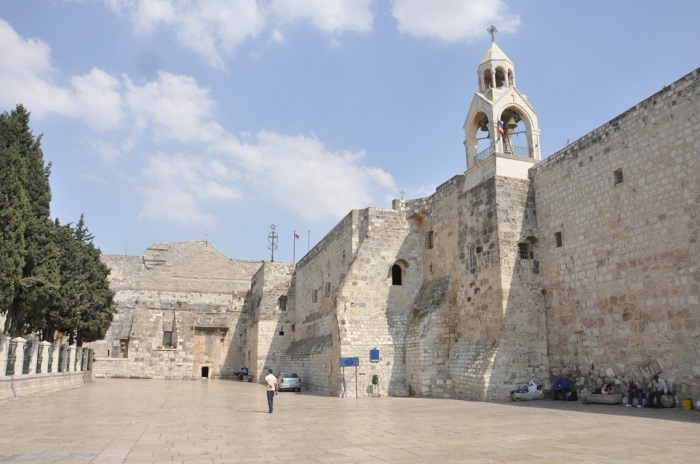The economics of Bethlehem and the birth of Jesus

Every village, town or city has an economy. Wherever people live; people have to make a living. We know quite a bit about the economic bases of modern regions. Silicon Valley is known for tech. New York, especially Wall Street, is known for finance. Washington, D.C. is known for the government business. Houston is known for oil. Pittsburgh, where I am right now, is known for steel.
What is true for all these cities is also true for the cities mentioned in the Bible. The problem is that most people are not familiar with the economics of the cities mentioned in the Bible. Case in point, the Biblical city which will be read and preached about the most this week, Bethlehem.
The name Bethlehem is a combination of the Hebrew word for "house," beth, and the Hebrew word for "bread," lehem. So it could be translated as House of Bread. This has caused some people to think that perhaps it was a bakery city, but there is no evidence for that (and given the lack of preservatives and refrigeration, it is unlikely that any city could have built its economy of the production and export of bread). This misunderstanding can be avoided if we realize that though lehem can refer to loaves baked from wheat or barley, it can also refer to food in general. The prayer "give us this day our daily bread" is not limited to baked goods.
What the evidence does show is that Bethlehem's economic base was built on the breeding of sheep. We not only have the witness of the Gospels themselves, which show shepherds watching in their fields by night on the evening of the Nativity, but we also have the witness of other ancient sources, for example, the writings of the rabbis in the Mishnah.
According to Alfred Edersheim, a Jewish scholar who converted to Christianity during the Victorian era:
"…Jewish tradition may here prove both illustrative and helpful. That the Messiah was to be born in Bethlehem, was a settled conviction. Equally so was the belief, that He was to be revealed from Migdal Eder, “the tower of the flock.” This Migdal Eder was not the watchtower for the ordinary flocks which pastured on the barren sheep ground beyond Bethlehem, but lay close to the town, on the road to Jerusalem. A passage in the Mishnah leads to the conclusion that the flocks, which pastured there, were destined for Temple-sacrifices, and, accordingly, that the shepherds, who watched over them, were not ordinary shepherds. The latter were under the ban of Rabbinism, on account of their necessary isolation from religious ordinances, and their manner of life, which rendered strict legal observance unlikely, if not absolutely impossible."
So, Bethlehem's economy was not just based on the breeding of sheep; it was based on the breeding of sheep to be exported to the nearby city of Jerusalem where they would be used as part of the Temple's sacrificial system. The Lamb who would be slain to bear away the sins of the world was born in the city where lambs were born and bred to be used in the sacrificial system which symbolized the coming Lamb of God.
Don't let anyone tell you that the geographical details of the Bible don't matter or that economic analysis is unspiritual or unfruitful for helping us to understand the Bible and God's purposes better.
Despite the fact that it was probably more likely a shepherding city than a baking one, nevertheless Bethlehem, through Jesus, lived up to its name, House of Bread. Jesus was laid in a manger (a feeding trough), an appropriate symbol of the truth that He is indeed food. He is the Lamb of God and bread of life. He is Bethlehem's export to the whole world.
Jerry Bowyer is financial economist, president of Bowyer Research, and author of “The Maker Versus the Takers: What Jesus Really Said About Social Justice and Economics.”





























